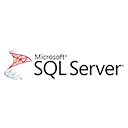PHP is a popular server-side scripting language for web development. In this beginner's tutorial, we'll explore how to connect to a SQL Server database using PHP. We'll cover the essential steps and provide sample PHP code examples to help you get started.
Prerequisites
Before getting started, make sure you have the following prerequisites:
- PHP: Ensure PHP is installed on your web server. You can download PHP from the official website.
- SQL Server: Have access to a SQL Server instance and the necessary credentials.
- Web Server: You need a web server (e.g., Apache) to run PHP scripts.
Connecting to SQL Server with PHP
To connect to SQL Server from a PHP application, you can use the SQLSRV extension for Microsoft SQL Server. Here's a PHP code snippet to establish a connection:
$serverName = "your_server";
$connectionOptions = array(
"Database" => "your_database",
"Uid" => "your_username",
"PWD" => "your_password"
);
//Establishes the connection
$conn = sqlsrv_connect($serverName, $connectionOptions);
if ($conn === false) {
die(print_r(sqlsrv_errors(), true));
} else {
echo "Connected to SQL Server.";
// Perform database operations here
}
?>
Executing SQL Queries
With a connection in place, you can execute SQL queries using PHP. Here's an example of executing a SELECT query:
$sql = "SELECT * FROM YourTable";
$query = sqlsrv_query($conn, $sql);
if ($query === false) {
die(print_r(sqlsrv_errors(), true));
}
while ($row = sqlsrv_fetch_array($query, SQLSRV_FETCH_ASSOC)) {
// Access data and process results
}
?>
What's Next?
You've learned the basics of connecting to SQL Server and executing SQL queries with PHP. To become proficient, you can explore more advanced topics such as parameterized queries, data manipulation, error handling, and building PHP web applications that interact with SQL Server databases.
PHP is a versatile language for developing web applications that work seamlessly with SQL Server and other databases.

